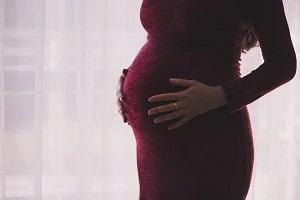What Are the Risks for My Baby if Preeclampsia Occurs?
- Updated on: Jul 6, 2024
- 5 min Read
- Published on Mar 17, 2020

Preeclampsia is a high blood pressure disorder found in women during pregnancy. It is also called toxemia and is characterized by high blood pressure, presence of protein in the urine, swelling in legs, feet, and hands.
Severe cases of preeclampsia in some cases may lead to a serious condition called eclampsia that can be dangerous to both the baby and mother, and in rare cases may even lead to death of the fetus.
What are the Risks for my Baby if I Have Preeclampsia?
If you have severe preeclampsia during pregnancy, you may need to deliver your baby immediately, even if he/she is not grown fully.
Babies who are born prematurely can die at an early stage or may suffer from severe complications that may last lifelong. Babies born to preeclampsia mothers may suffer from many problems. Some of them may include:
Preterm Birth or Premature Birth
Women with severe preeclampsia during pregnancy are at a higher risk of giving birth to premature babies. Throughout the world, preeclampsia is responsible for almost 20% of the 13 million preterm births every year.
Babies who are born before 37 weeks of pregnancy are considered premature; however, some babies are born even before 32 weeks which can cause more severe complications in babies.
Babies who are born prematurely need to be kept under close observation. However, the effects of premature birth vary widely among babies. Some babies need to be kept under observation in a neonatal intensive care unit (NICU) for just one or two days while others may need to spend their first few months of life there only.
Prematurely born children may sometimes develop several lifelong problems such as learning disabilities, epilepsy, cerebral palsy, blindness, and deafness.
Intrauterine Growth Restriction (IUGR)
Babies born to preeclampsia mothers sometimes do not grow at a normal rate inside the womb and therefore remain smaller in size for their gestational age. The reason is that preeclampsia reduces the flow of blood towards the placenta of the mother which in turn restricts the supply of food to the baby in her womb. As a result, the baby becomes malnourished and may be prone to various adult diseases like hypertension, diabetes, congestive heart failure, etc.
Researchers suggest that out of 30 million IUGR infants born worldwide each year, 15% are due to preeclampsia.
Acidosis
The fetus survives in the mother’s womb by obtaining essential nutrients via the placenta. Preeclampsia damages the placenta due to which the baby’s body stops the flow of blood to different organs (limbs, kidneys, and stomach) so as to preserve the supply of blood to the brain and heart.
If the placenta gets detached or dies, the baby’s body starts starving for oxygen and therefore produces large amounts of lactic acid. Excessive deposition of lactic acid causes acidosis in the baby’s body due to which he/she may become unconscious or stop moving. At this stage, the baby should be immediately delivered even if he/she is premature.
Early Death
One of the most devastating consequences of preeclampsia is the early death of the infants. In the United States, approximately 10,500 babies die every year due to preeclampsia and almost half a million throughout the world.
Highly developed countries have facilities to keep the premature babies alive while many underdeveloped and poorly developed countries still do not have such means and therefore the rate of early neonatal deaths in such countries is larger.
You may want to read these also:
What is Postpartum Preeclampsia?
Preeclampsia: The New Unknowns Scientists Are Looking For
Stillbirths
Severe cases of preeclampsia may sometimes lead to stillbirths i.e., the babies die in the uterus after twenty weeks of gestation. In the United States, the number of stillbirths due to preeclampsia is almost 1000 to 2,200 annually.
Other Risks
Besides the above-mentioned risks, the babies born to preeclampsia mothers are at risk of developing several other disorders either immediately or later in life, such as:
- Learning disorders
- Blindness
- Deafness
- Epilepsy
- Cerebral Palsy
- Precocious coronary atherosclerosis (may be later on life)
- Hypertension
- Diabetes
Can a Preeclampsia Mother Deliver a Baby?
Yes, preeclampsia mothers can deliver a baby even though they have to face some serious issues during their pregnancy due to the condition.
Preeclampsia itself is considered to occur due to pregnancy, therefore, delivering the baby is recommended as one of the good methods to stop the development of preeclampsia into a more serious condition called eclampsia.
Can Preeclampsia Lead to Cerebral Palsy in Babies?
There are still many things that doctors don’t know about cerebral palsy but some studies suggest that preeclampsia mothers are more prone to have children with cerebral palsy especially if the baby is born prematurely.
Preeclampsia also causes early labor in expecting mothers resulting in the delivery of babies at 37 weeks or even earlier.
Doctors are still not sure that whether preeclampsia causes cerebral palsy or not but some researchers suggest that mothers who give birth to their babies between the gestational ages of 32 and 36 are almost five times more expected to deliver babies with cerebral palsy.
Can Low-Dose Aspirin Help me in Reducing my Risk for Preeclampsia and Premature Birth?
Yes, low-dose aspirin also called baby aspirin reduces the risk of preeclampsia in some women and also the chances of premature birth.
Usually 81 mg aspirin is considered as low-dose aspirin and is recommended to some women depending upon the severity of their preeclampsia. Women who are at higher risk for preeclampsia are recommended to start their low-dose aspirin therapy after they have completed their 12 weeks of pregnancy.
FAQs
How Does Preeclampsia Affect the Baby?
Babies born to preeclampsia mothers get affected in several ways. Preeclampsia can impair kidneys, liver, brain, and other organs of the developing fetus. It can also lead to premature births, acidosis, and various other abnormalities in the baby.
How Can I Reduce My Risk of Preeclampsia in My Second Pregnancy?
For preventing preeclampsia in your second pregnancy, the doctors may recommend a low-dose aspirin (60 to 81 mg) especially in your first trimester of pregnancy.
How Early Can You Deliver With Preeclampsia?
Preeclampsia often results in preterm births and the delivery is considered premature if you deliver before 37 weeks of pregnancy and in some severe cases, it is before 32 weeks of pregnancy.
Can You Deliver Naturally With Preeclampsia?
As soon as you are diagnosed with preeclampsia, your doctor may recommend you to get ready for the delivery and will decide to induce labor so that you will have a normal delivery. But if have preeclampsia in your early stages of pregnancy, there are greater chances that you may undergo a cesarean delivery because your cervix is not yet prepared for normal delivery.
Can You Have a Healthy Baby With Preeclampsia?
In mild cases of preeclampsia, there are higher chances that you will deliver a healthy baby provided that you take some precautions as recommended by your doctor such as take your medicines on time, take appropriate bed rest, eat healthy food, and monitor your blood pressure, etc. In severe cases of preeclampsia, there are higher chances that you will have to deliver prematurely and the baby may not be as healthy.











